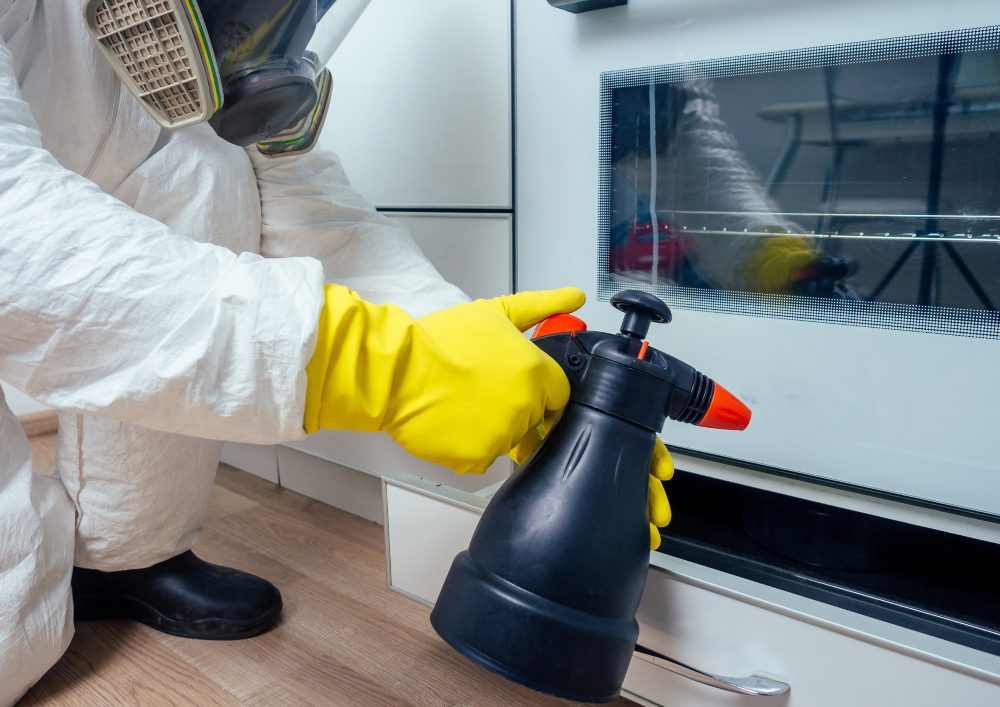Methods to Handle an Urgent Pest Infestation

Contending with a infestation invasion can be a resident's worst nightmare. Whether it’s ants marching through your home, lice interrupting your restful sleep, or vermin scurrying in the walls, a sudden infestation can leave you feeling overwhelmed and desperate for a remedy. Learning how to efficiently handle and prevent these problems is crucial for maintaining a safe and enjoyable living environment.
In this definitive guide, we will investigate multiple strategies for keeping your home without pests year-round. From recognizing common household pests and learning how to get rid of them, to debunking pest control myths and talking about the advantages of professional services, we will provide you with the essential knowledge needed to address any pest problem. Equipped with the right information and helpful tips, you will be prepared to protect your home from intrusive guests no matter the period.
Typical Household Pests and Remedies
Household pests can disrupt our regular lives and pose health risks if left untreated. Typical invaders such as termites, cockroaches, and bed bugs require prompt action to lessen their influence. Ants often enter homes in search of food, creating pathways that can be hard to get rid of. A mix of neatness, sealing access points, and using attractant traps can successfully manage ant populations.
Palmetto bugs are not only unsightly but also carry diseases. These creatures thrive in dark, wet environments, making kitchens and washrooms prime targets. Keeping these areas clear and well-ventilated is crucial, along with using pesticides or traps specifically intended for cockroaches. For serious invasions, seeking professional infestation management services may be essential to eliminate the problem fully.

Sleeping pests are widely challenging to find and eliminate. They often hitchhike in luggage and apparel, leading to problems in houses and hotels. The solution to managing mattress bugs is to recognize them early and respond quickly. Washing contaminated items in hot water, sucking up regularly, and using targeted chemicals can help control and ultimately remove these creatures from your home.
Seasonal Pest Control Prevention Tips
As the times of year change, so do the types of pests that invade our homes. Spring often brings various ant species, termite infestations, and different insects emerging from their cold weather dormancy. To get ready your home, conduct a thorough inspection of the exterior for any openings or spaces where these invaders could enter. Sealing these gaps, along with keeping your garden free of standing pools and debris, will establish a less hospitable environment for potential infestations.
During the summer, it's crucial to focus on mosquito and insect control. Regularly mowing your grass, cutting back overgrown bushes, and getting rid of any stagnant water can help minimize mosquito breeding locations. Additionally, think about using organic repellents in your outdoor space to help warding off these annoying bugs at bay while you spend time in your yard.
As autumn approaches, rodents begin their search for warmth and protection. To prevent an influx, check your home’s foundation and access areas. Ensure all window frames and doors are well-sealed and fix any damaged screens. Storing food in airtight containers and maintaining your cooking area and pantry tidy can significantly deter rats and other creatures looking for a meal as they seek shelter from the cooler weather.
Expert vs. Do-It-Yourself Pest Control
When it comes to pest management, homeowners often face the choice between DIY methods and hiring experts. DIY pest management can seem attractive due to its affordability and the convenience of treating issues on your personal timing. Ant Control Queen Creek include store-bought sprays, traps, and natural remedies. However, many DIY solutions may not address the underlying cause of pest infestations, leading to recurring problems. Additionally, improper application of solutions can pose health risks to your family and pets.
On the other hand, professional pest management services offer specialized knowledge and focused knowledge that can effectively handle various pest problems. Licensed pest control technicians can conduct comprehensive inspections to detect problem areas and pest entry points. They also use commercial-grade products and techniques that are often more effective than regular retail products. Moreover, experts can provide ongoing monitoring and prevention strategies, significantly minimizing the chances of future infestations.
Ultimately, the choice between DIY and expert pest control depends on the extent of the infestation and the homeowner's comfort level with handling pests. For small issues, Do-It-Yourself methods might be sufficient, but for major infestations or persistent pest problems, engaging a professional service is usually the best and most efficient approach.
